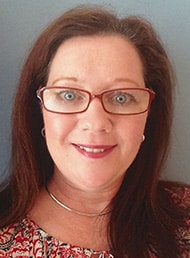Some of the more common non-sports causes of concussion include:
•Falls
•Workplace accidents
•Motor vehicle accidents
•Assault, including domestic abuse
Think about it … You can lose your footing on your morning jog, fall off the ladder cleaning gutters, jolt your head in a car accident, take a tumble in a pick up game, slip while walking the dog during an ice storm, plunge headlong down the stairs on a business trip, or simply stumble over things in the dark. All of these are real-life scenarios that caused adults in my life to reach out and learn more about how to best recover from a concussion.
One of the biggest differences between concussions sustained in sports versus non-sports contexts is that athletes can usually depend on athletic trainers, coaches, and teammates to recognize the signs of concussion. That’s not necessarily true at home, in the workplace or on the scene of an accident. It’s important that we all know the signs and symptoms of a concussion, so when life happens we can be ready to step in and respond appropriately to head injuries.
When athletes are concussed we immediately work to remove them from the play of the game and don’t let them return to school or play until they are ready. We even have laws to protect our athletes from being put back in the game too soon. But what about adults concussed off the field? What about returning to work, managing parenthood, or caring for an aging parent when you can’t drive, concentrate, remember, or focus? You don’t just get up the next day and step back into life. You will need to take some time off, make adjustments and follow concussion recovery protocols too.
Concussions are brain injuries that really do require immediate modifications to your normal routine and command the need for accommodations in your adult life, just as they do for athletes. Trying to push through concussion symptoms is one of the biggest mistakes concussed adults make. All of the same rules apply in adulthood as they do in sports. If you don’t take your condition seriously, you too are vulnerable to reinjury and permanent brain damage. This is why it is so important that you work with concussion specialists that can help you gauge your condition and craft a unique recovery plan that factors in your duties, roles and responsibilities at home and at work.
The Gwinnet Medical Center’s Concussion Institute now has a new adult division that provides specialized care and support for concussed adults. The Concussion Institute offers comprehensive concussion care, including testing, diagnostics, treatment and therapy. They provide the medical documentation needed for accommodations at work, and have in-house specialists who can help you navigate relations with human resources and workers compensation departments. They know the pressures and demands on adults to heal quickly and get back to productive lives, so they work with you to develop a customized recovery plan that is realistic for your life.
Concussions are serious medical conditions that are not to be taken lightly. They require us to seek specialists, to lean on a support system, to adjust our schedules, and to have patience with ourselves as we heal. I encourage you to be Head Smart and learn more by visiting the website www.cdc.gov/headsup/basics/.
You can contact Paige Havens by email: Havensp@bellsouth.net or call 678-938-4279


